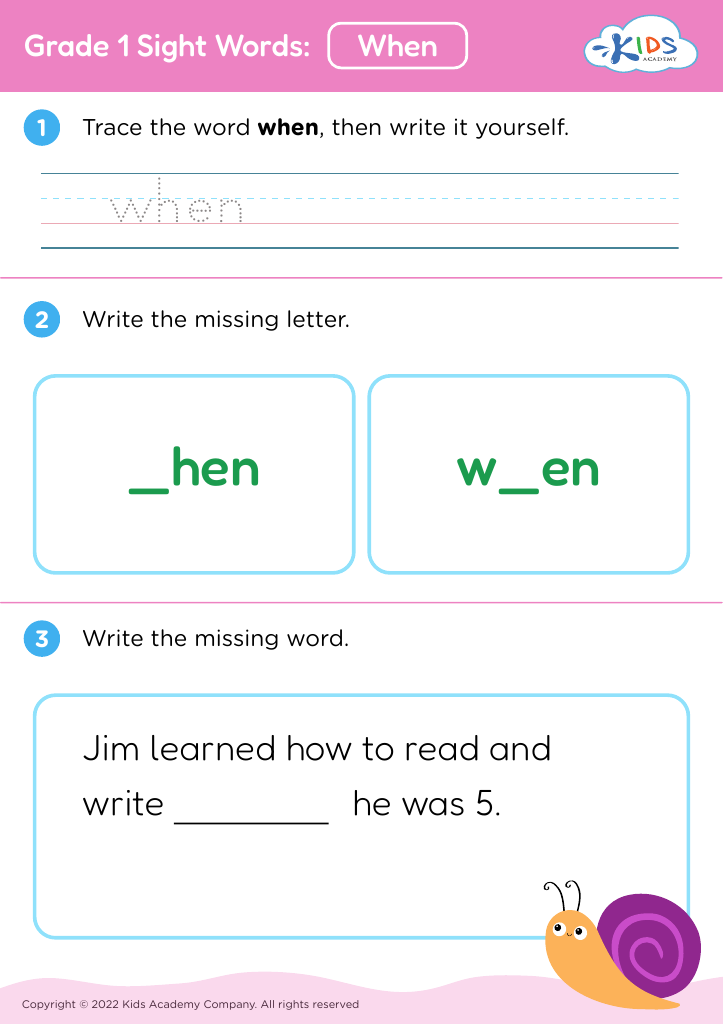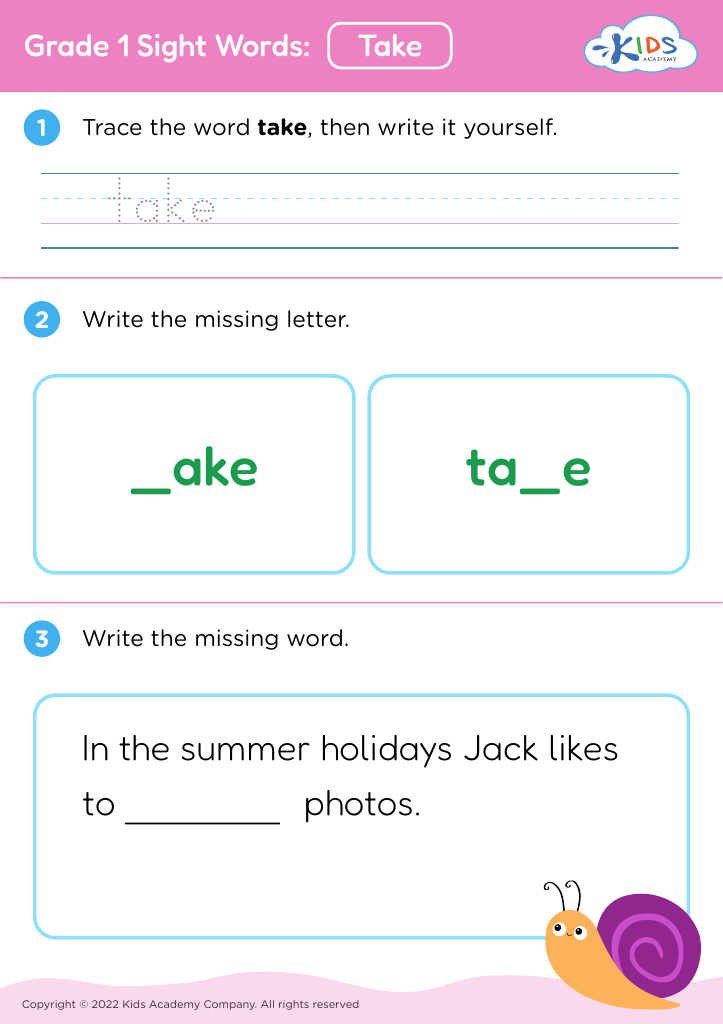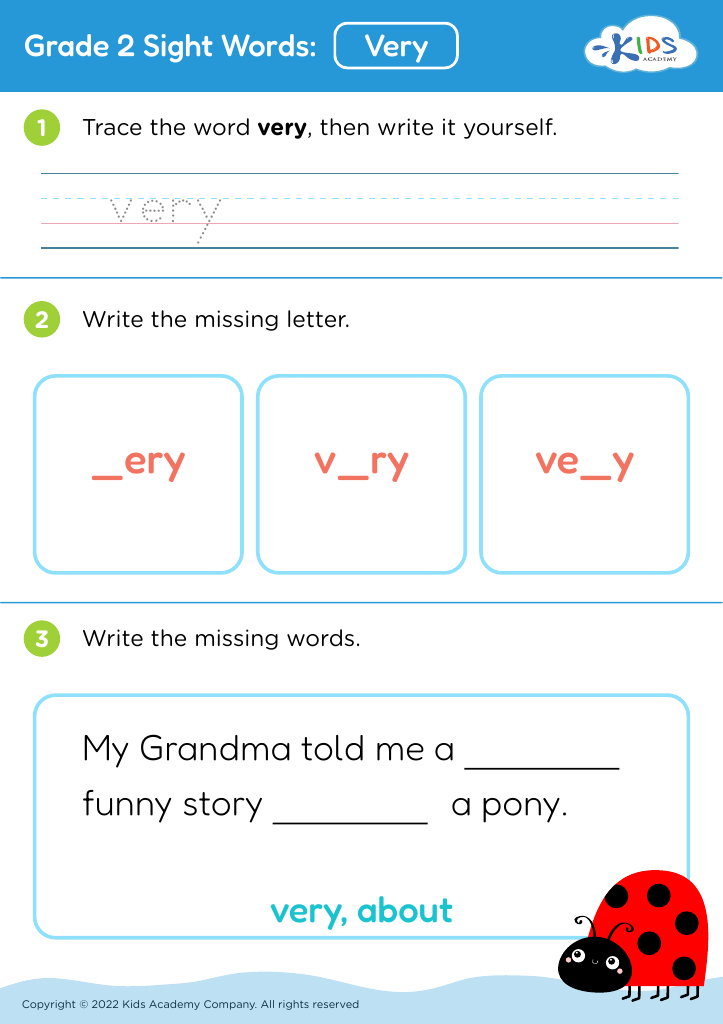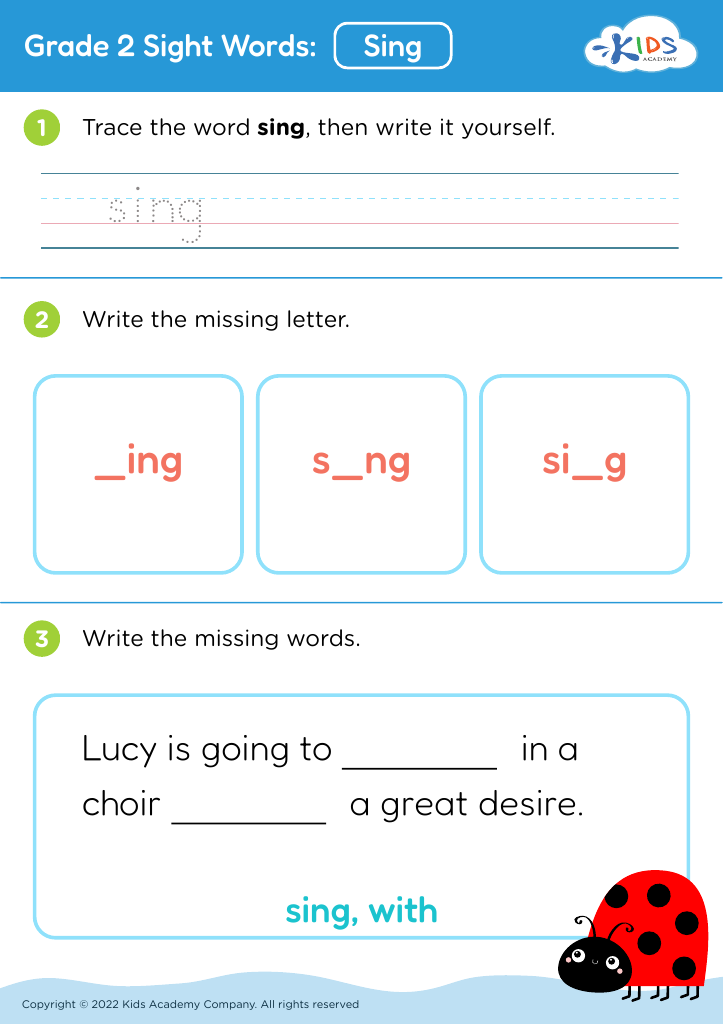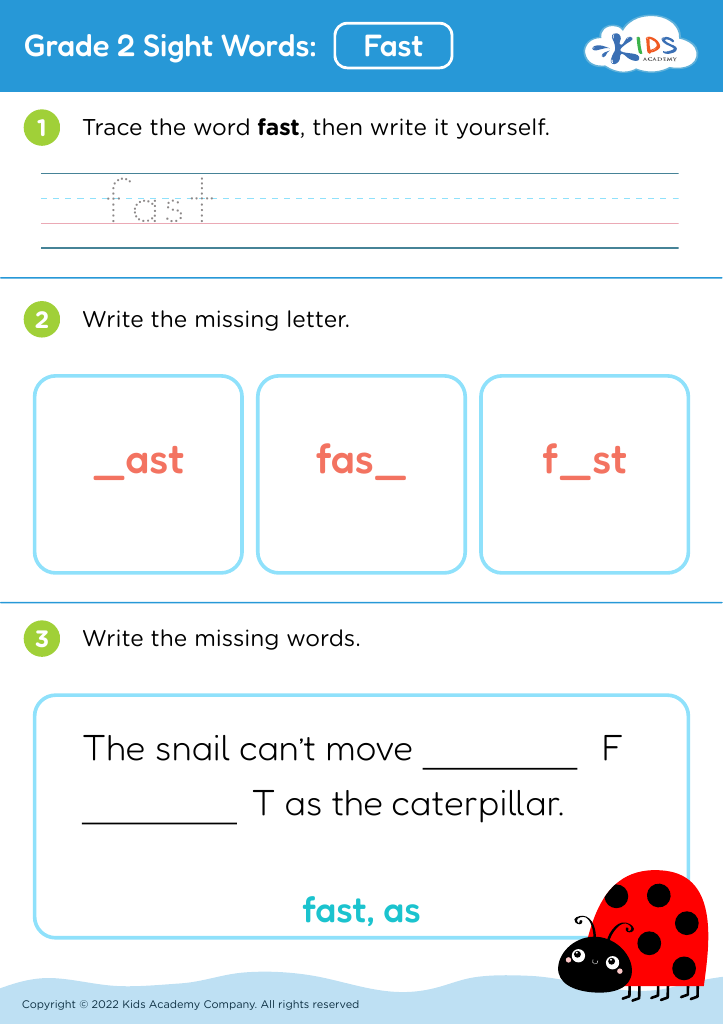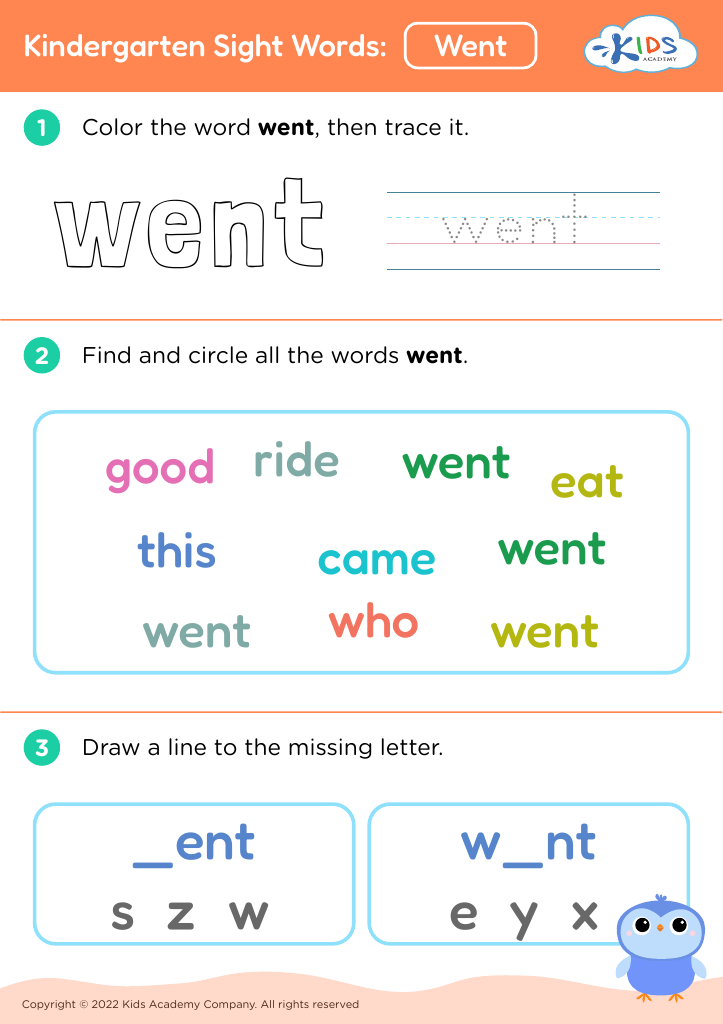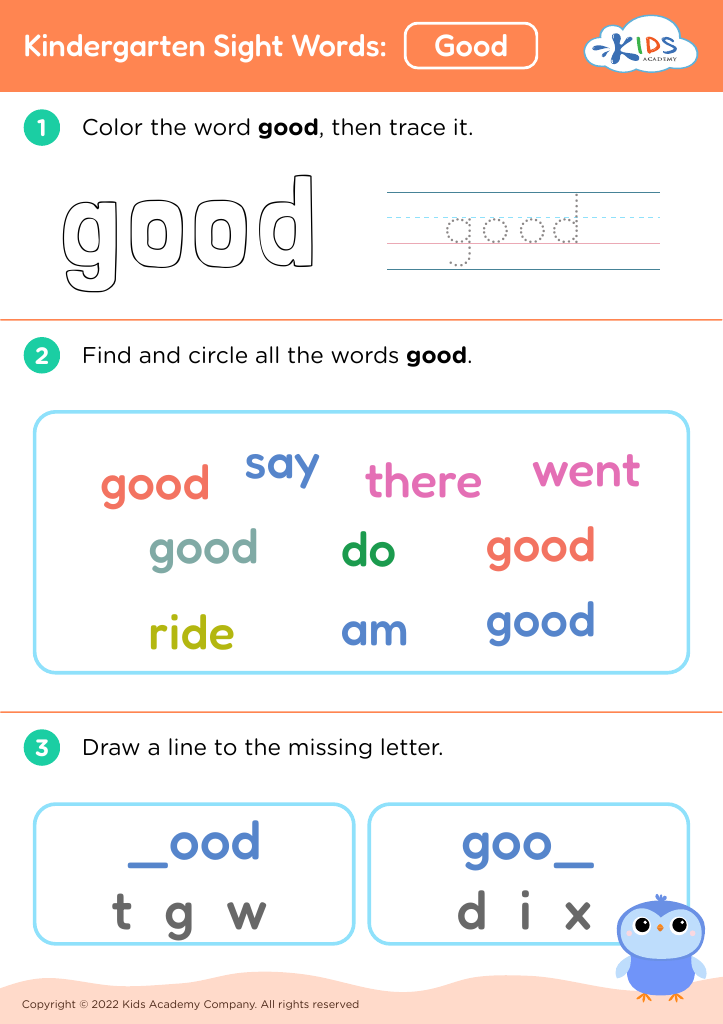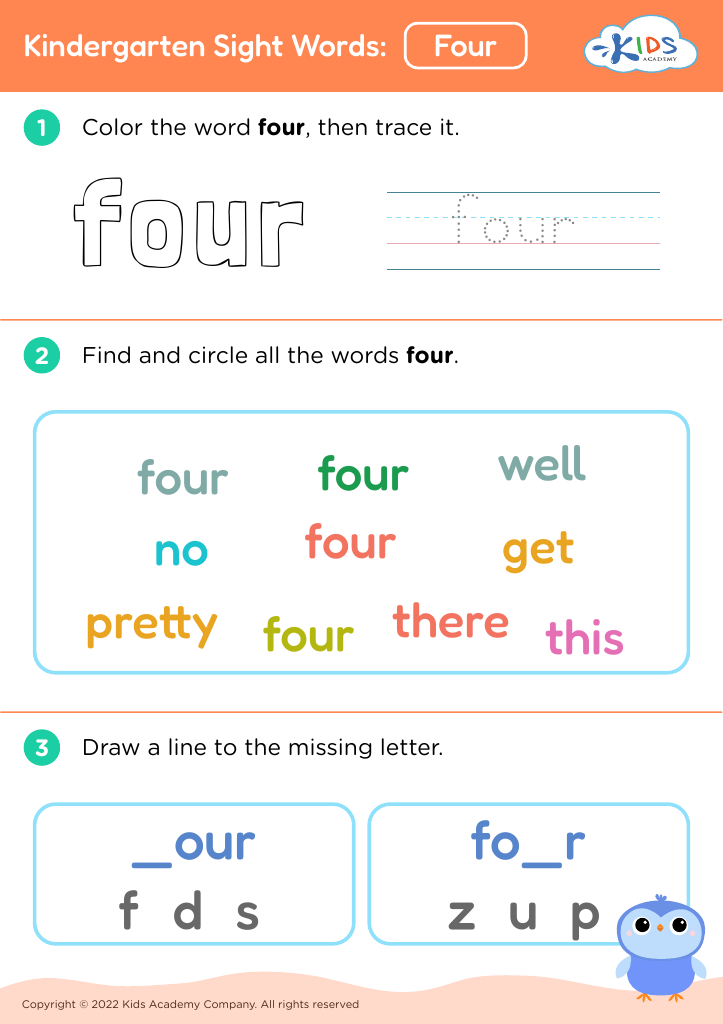Addition Practice Reading Worksheets for Ages 5-9
8 filtered results
-
From - To
Welcome to our Addition Practice Reading Worksheets for Ages 5-9! These engaging worksheets are designed to help young learners develop essential reading and math skills simultaneously. Each activity combines simple addition problems with entertaining reading comprehension exercises, ensuring your child builds a strong foundation in both areas. Our colorful and interactive worksheets are ideal for classroom use or at-home learning, making math fun through captivating stories and scenarios. These resources cater to kids aged 5 to 9, promoting critical thinking and problem-solving skills while keeping them motivated. Jumpstart your child's learning journey with our delightful addition practice worksheets today!
Addition practice reading for ages 5-9 is essential for several reasons. First, this activity enhances basic numeracy skills, which serve as a foundation for more advanced mathematical concepts. Early comprehension of addition not only makes math more manageable as children progress in their education but also fosters a sense of confidence and competence in students.
Moreover, integrating reading with math practice encourages holistic learning. It helps children understand the context and application of addition in real-life scenarios, bridging the gap between numerical skills and everyday situations. This method also supports vocabulary development, as children encounter mathematical terms and concepts within engaging stories, further enriching their language skills.
Teachers and parents should prioritize such practices to ensure that children not only learn their addition facts effectively but also enjoy the learning process. Additionally, it serves as a valuable opportunity for bonding, as caregivers can participate in activities alongside children, making learning a social and interactive experience.
Ultimately, focusing on addition practice reading nurtures critical thinking, problem-solving abilities, and a love for learning, equipping children with the tools necessary for academic success and increasing their motivation to engage with math and literacy as they grow.
